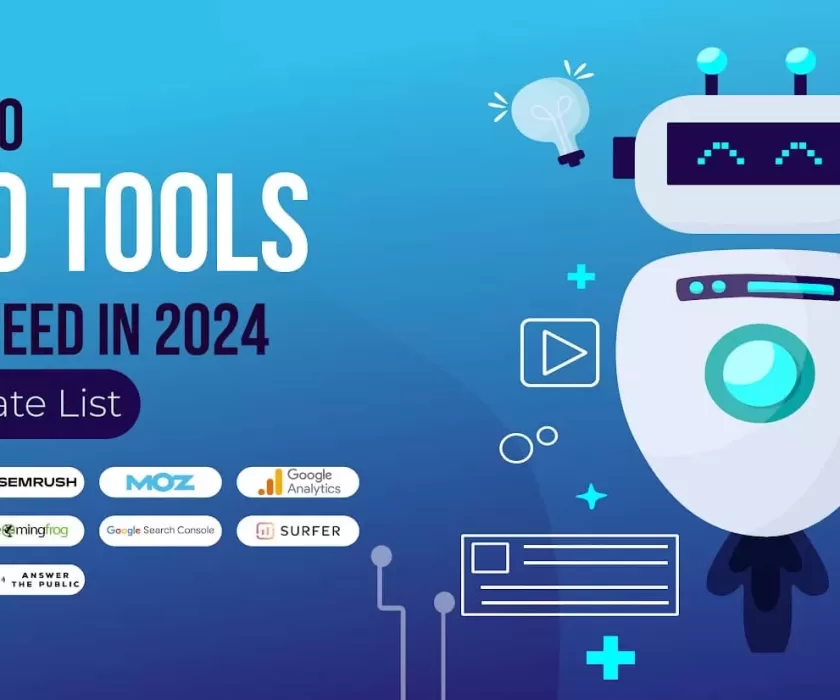Technical SEO for ecommerce isn’t merely a buzzword; it’s the foundation upon which your ecommerce success is built. It involves a meticulous process of optimizing your website’s structure, content, and technical elements to ensure it not only ranks well but also provides an exceptional user experience. From website speed optimization to mobile responsiveness, keyword strategy to structured data implementation, we will delve into every facet of technical SEO that empowers ecommerce businesses to thrive in the digital age.
In the ever-expanding digital marketplace, Ecommerce websites face fierce competition for visibility and customer attention. To stand out amidst the crowd, mastering the intricacies of Technical SEO (Search Engine Optimization) is essential. Whether you’re a seasoned Ecommerce veteran or just starting your online retail journey, this comprehensive guide is your roadmap to navigating the technical aspects that can significantly impact your website’s performance on search engines.
A Comprehensive Guide to Technical SEO for Ecommerce
1. Optimize website speed
The first crucial step of this technical SEO for ecommerce guide focuses on optimizing website speed. Imagine your ecommerce site as a digital storefront; the faster it opens, the more inviting it becomes. Website speed optimization is not a mere suggestion; it’s the cornerstone of your ecommerce SEO strategy. It encompasses a suite of practices such as image compression, browser caching, script minimization, and Content Delivery Networks (CDNs). These techniques collectively ensure your site loads like a sprinter out of the blocks, delivering a seamless user experience.
2. Mobile optimization:
As a pivotal step in this guide, turn your attention to mobile optimization. With an ever-increasing number of shoppers using smartphones and tablets, ensuring that your ecommerce site is not just functional but exceptional on mobile is paramount. Mobile optimization encompasses responsive design, page load speed, touch-friendly navigation, and content formatting tailored to smaller screens. A seamless mobile experience isn’t merely a luxury; it’s a necessity for retaining and converting mobile visitors.
3. Site structure:
Creating an intuitive and organized site structure is a crucial in this guide for ecommerce. Think of your site structure as the blueprint of a well-organized physical store. It guides both users and search engines through your virtual aisles, making navigation effortless and logical. An effective site structure involves categorizing products and services logically into main categories, subcategories, and individual product pages. Clear and concise URLs, devoid of excessive parameters, enhance user experience and aid search engines in understanding your content.
4. Keyword research:
Keyword research is the bedrock of effective ecommerce SEO. This step involves identifying and targeting relevant keywords that potential customers use when searching for products. In this section, you need to delve into the intricacies of keyword research, helping you uncover high-traffic, low-competition keywords that will fuel your ecommerce site’s content strategy and enhance its visibility in search results.
5. On-page SEO
On-page SEO is the art of optimizing individual product pages for search engines. This step involves strategically incorporating target keywords into product titles, meta descriptions, headers, and descriptions. Explore how to create compelling and informative product descriptions, utilize high-quality images, and implement ALT tags effectively. By mastering on-page SEO, your ecommerce site will resonate with both users and search engines, boosting its visibility and conversion rates.
6. Schema markup:
Schema Markup, a form of structured data, provides search engines with additional context about products. This section will guide you on how to implement Schema Markup effectively, resulting in eye-catching rich snippets that can boost click-through rates and overall search visibility for their ecommerce offerings.
7. XML sitemap
Create an XML sitemap to help search engines crawl and index your website efficiently. Creating an XML sitemap is a critical technical SEO task. It’s akin to providing a map to search engines, helping them navigate and index your ecommerce website efficiently. Once crafted, don’t forget to submit this invaluable tool to Google Search Console, ensuring that your site’s content is discovered, crawled, and ranked effectively by search engines.
8. Robots.txt
Configure a robots.txt file to control which parts of your site search engines can crawl and index. It is one of the most interesting steps in the guide of technical SEO for ecommerce. Utilizing a robots.txt file is a pivotal SEO tactic. It empowers website owners to dictate which sections of their site search engines can access and index. By customizing this file, you ensure that your most valuable content is prioritized while keeping sensitive or duplicate content hidden from search engine crawlers, optimizing your site’s performance and visibility.
Making a sound decision for your business
If you need to find the finest technical SEO for eCommerce, then hire Digitalfyx the best technical seo services provider in the United States and we’ll never let you down, no matter what the services that you’re looking for. Our team of experts ensures your firm gets the success you deserve.
FAQ’s
1. What is Technical SEO for an eCommerce website?
Technical SEO for an eCommerce website means optimizing the technical features of your website to improve its search engine exposure and usability. Tasks like increasing site performance to optimizing crawlability and boosting mobile responsiveness to incorporating structured data everything is included in technical SEO. These optimizations assist search engines in better understanding and indexing your product pages. This is mandatory because it improves your search engine ranks. By addressing technical components ecommerce websites can guarantee that their items are easily discoverable by search engines. This is essential to generate more organic traffic and improve the overall online performance of your store.
2. Why is Technical SEO crucial for eCommerce success?
Technical SEO for an eCommerce website is necessary if you want to succeed in the digital universe because it directly impacts a website’s visibility on search engines. If you can optimize technical aspects like site speed & mobile responsiveness as well as crawlability, then be sure that search engines will efficiently index your product pages. This, in turn, improves the website’s chances of ranking higher in search results and attracting more organic traffic. Improved search engine visibility is crucial for eCommerce success because it directly influences the discoverability of products by potential customers.
3. How can I optimize product pages for Technical SEO on my eCommerce site?
You must use strategic tactics to improve the Technical SEO for your eCommerce website’s product pages. Firstly, include important words in titles and descriptions (meta tags). Describe images well by giving them clear names and adding text describing them. Help search engines understand your products better by using structured data. Make sure your website links are organized, and use canonical tags to avoid repeating content. Also, regularly check and improve how fast your pages load. When you accomplish these things, your product pages become more appealing to both people and search engines, which attracts more visitors.
4. Are mobile optimization and site responsiveness essential for Technical SEO in eCommerce?
Yes, mobile optimization and site responsiveness are critical for Technical SEO for eCommerce websites. The reason because search engines favor mobile-friendly websites and a responsive design guarantees that your online store appears and performs properly on every device. This enhances user experience and boosts your search engine results. With an increasing number of users accessing eCommerce sites via mobile devices, having a mobile-optimized and responsive website not only meets search engine requirements but also caters to the preferences of a larger audience. That’s why thereby contributing significantly to your eCommerce business’s overall success in search results.
5. What tools can help with Technical SEO for my eCommerce website?
You can improve Technical SEO for eCommerce websites with several tools.
- Google Search Console gives information on website performance, indexing status, and search queries.
- Screaming Frog may detect problems such as broken links and missing tags.
- PageSpeed Insights examines and advises changes to page performance, which is critical for SEO.
- SEMrush provides extensive SEO metrics, which include keyword tracking and competitive research.
- Ahrefs aids with backlink research and site audits.
Your e-commerce website will be search engine optimized if you use these tools to spot technical issues, appropriately optimize your website, and stay one step ahead of the competition.
Recommended Reads
Is Digital Marketing a Good Career?





